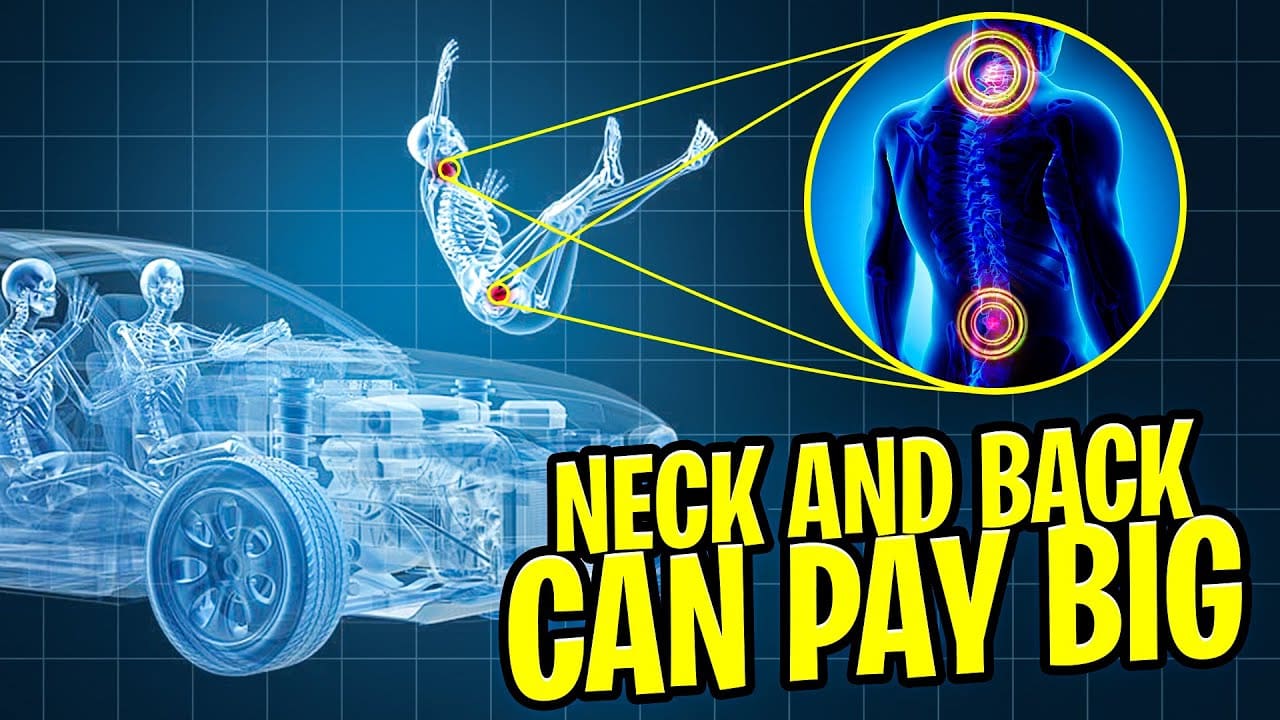Statistics have revealed that there are approximately 869,000 traffic crash-related cervical spine injuries seen in hospitals in the United States annually. Neck and back injuries can pay big, but considering the payout for your neck and back injury claim, it largely depends on the specific details of your case. Some neck and back injury cases can even amount to a seven-figure payout or beyond. Most neck and back injury cases may not necessarily stretch into six figures, but even the smaller cases can still amount to thousands of dollars. In this post, I aim to discuss the four main factors that impact the value of a neck or back injury claim. Pay attention to the fourth factor, as it often proves to be the most important in achieving a substantial payout.
1. Liability for the Accident
The first requirement for a considerable payout is determining who is liable for the accident that caused your injuries. If you can point to another person or entity as the cause of the accident, your case becomes stronger. For example, if you were rear-ended while stationary in your vehicle, the driver who hit you would be the liable party.
However, if you were the one who rear-ended another vehicle, you’d likely fail to make a successful claim against the other driver’s insurance company, as you’d be considered the liable party.
Kentucky is known as a “pure comparative negligence” state. This means your financial damages will be reduced by the percentage of your fault in the accident. For instance, if you’re awarded $100,000 in damages but are found 60% at fault, you’d receive only $40,000 from the other party or parties responsible for the remaining 40% of the fault.
2. Severity of Your Neck or Back Injury
The severity of your neck or back injury plays a significant role in determining the amount of compensation you can receive. The more severe your injury, the higher your potential compensation can be.
I usually categorize neck and back injuries into four categories:
- Soft tissue injuries: These involve strains or sprains in your spine, and they are the lowest valued cases.
- Bulging disc injuries are higher-valued injuries than soft tissue injuries. Bulging discs can sometimes require surgery, which increases the value of the claim.
- Herniated disc injuries: Again, these are higher-valued injuries. A herniated disc can rupture and spill into the spinal canal, often requiring surgery.
- Fractured spine injuries: A fractured spine is a serious injury, sometimes necessitating surgery. Such cases can have significant value.
3. Amount of Medical Treatment Received For Neck and Back Injuries
The extent of medical treatment you need is often directly proportional to the value of your case. The more treatment you need, the more valuable the case is usually. More severe injuries requiring surgery often make your case more valuable. Surgery is typically more invasive and costly, indicating a more severe or long-term injury. Insurance companies usually pay out more in such cases.
4. Available Insurance Coverage
The insurance coverage available can significantly influence the value of your case. It often determines the maximum amount that can be recovered. If the liable party has substantial insurance coverage, your case has a higher potential value. However, if the insurance coverage is low, your claim’s value may be limited to the available insurance coverage amount. One way to protect yourself financially in a car accident is to ensure that you have uninsured motorist insurance coverage and underinsured motorist insurance coverage on your automobile policy.
Contact Us Today! We’ve Won Countless Cases Involving Neck And Back Injuries.
At Meagher Injury Lawyers, we pride ourselves in providing great customer service, a personal touch to every client’s case, and an aggressive approach to the handling of neck and back injury claims when dealing with insurance companies. Tate and his team are here to help. Call us today for a free consultation about your neck or back injury case. You may be surprised about what you learn about the potential value of your case.







